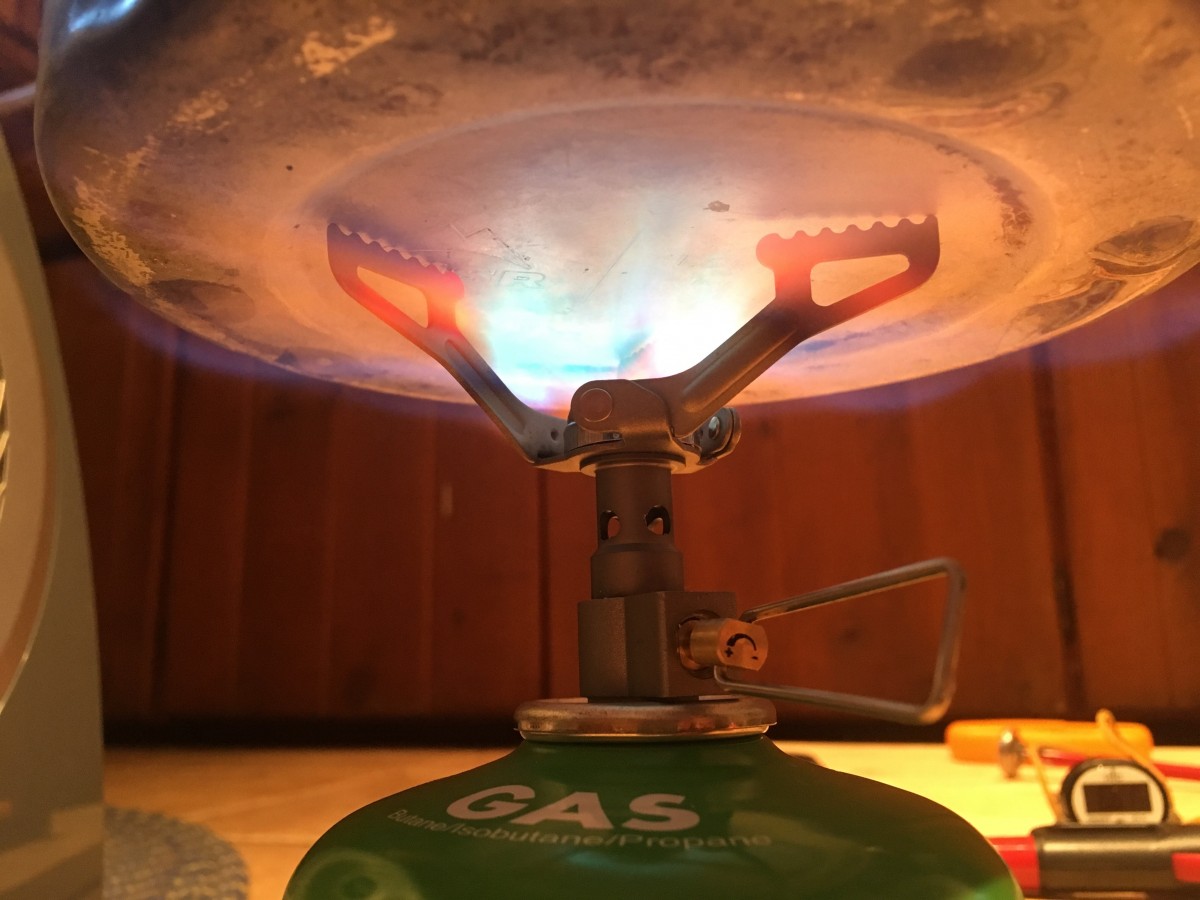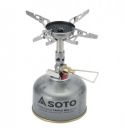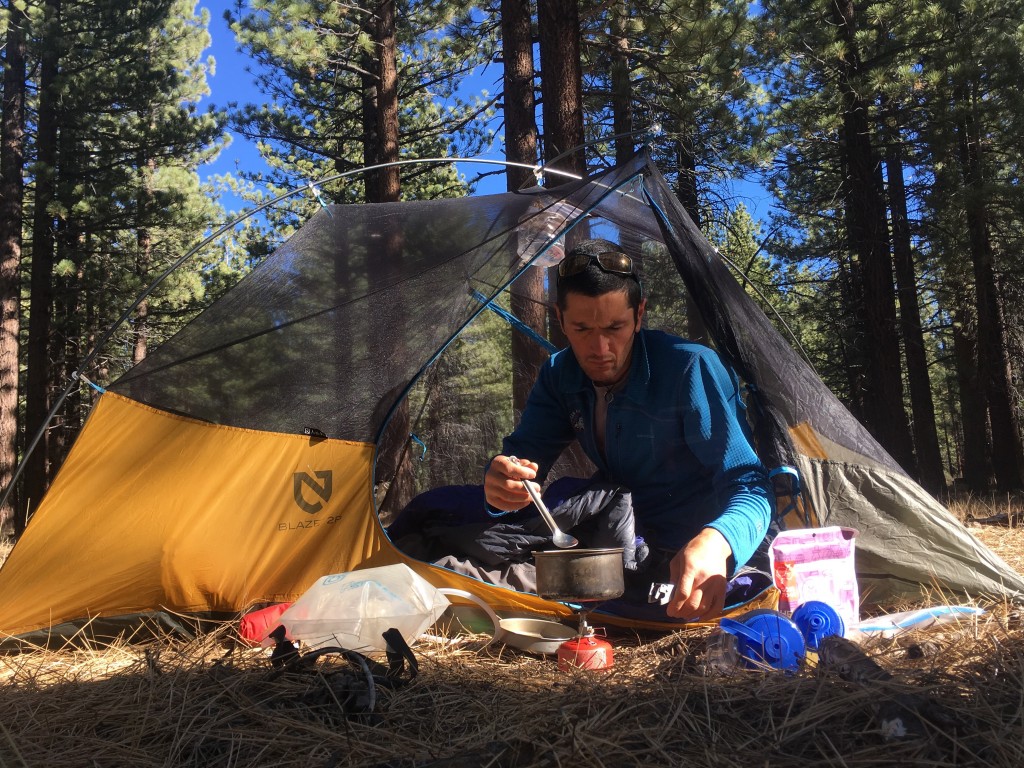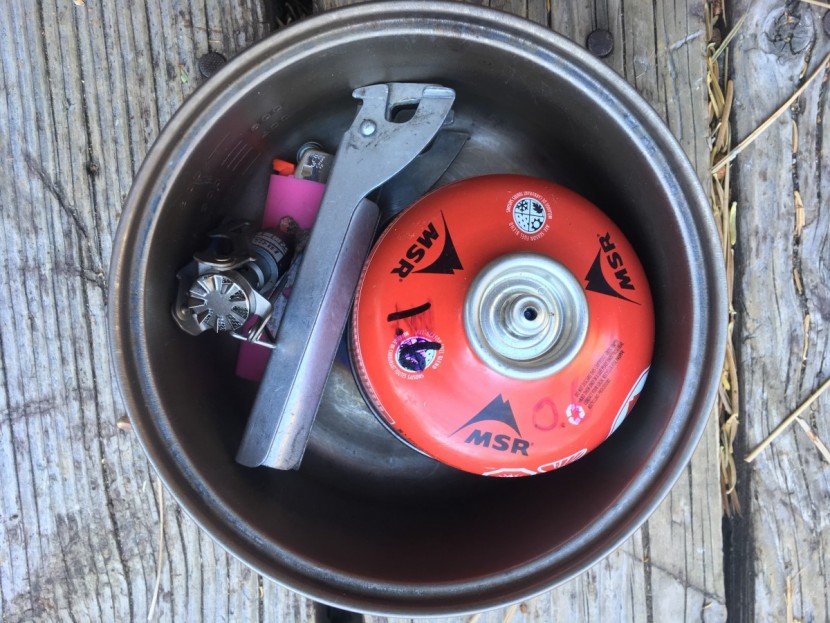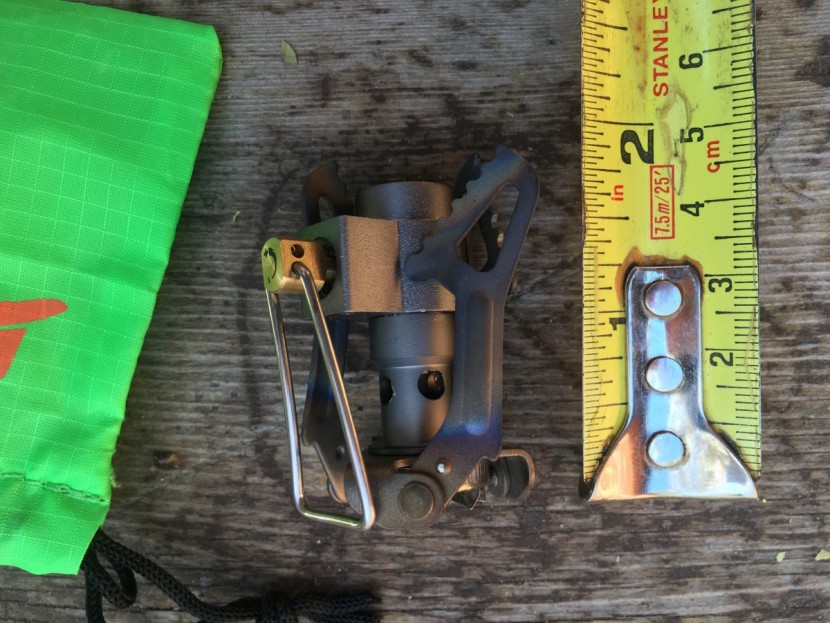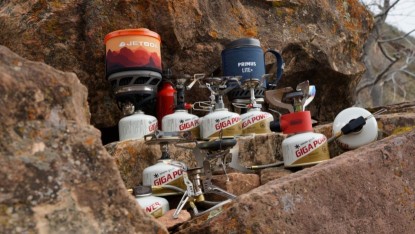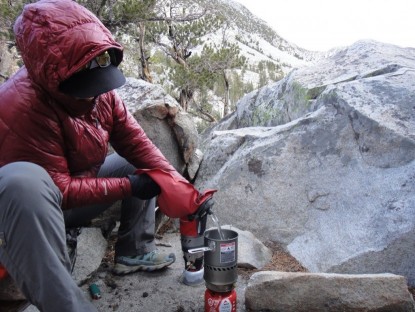Our Verdict
Compare to Similar Products
 This Product
BRS-3000T | |||||
|---|---|---|---|---|---|
| Awards | Best on a Tight Budget | Best Overall Backpacking Stove | Best Ultralight Backpacking Stove | Excellent Affordability | |
| Price | $17.00 List $17.90 at Amazon | $69.95 at REI Compare at 2 sellers | $65.90 at Amazon Compare at 3 sellers | $50 List $49.95 at Amazon | $30 List $29.95 at Amazon |
Overall Score  |
|||||
| Star Rating | |||||
| Bottom Line | A mini stove with a mini price | This lightweight stove is easy to use and will boil water when it's breezy | A crowd favorite for simmering that works well in a breeze and is also easy to use | This canister stove is lightweight, compact, fuel efficient, and performs well in wind | A bulky small canister stove that's good at simmering but doesn't have a piezoelectric start |
| Rating Categories | BRS-3000T | Soto Windmaster | MSR PocketRocket De... | Soto Amicus | Primus Essential Trail |
| Fuel Efficiency (25%) | |||||
| Weight (25%) | |||||
| Simmering Ability (20%) | |||||
| Ease of Use (15%) | |||||
| Boil Time (15%) | |||||
| Specifications | BRS-3000T | Soto Windmaster | MSR PocketRocket De... | Soto Amicus | Primus Essential Trail |
| Measured Essential Weight | 7.5 oz | 10.1 oz | 9.6 oz | 9.8 oz | 11.1 oz |
| Fuel Type | Isobutane | Isobutane | Isobutane | Isobutane | Isobutane |
| Type | Small Canister | Small Canister | Small Canister | Small Canister | Small Canister |
| Additional Included Items | Stuff sack | Stuff sack, pot support | Stuff sack | Stuff sack | None |
| Dimensions | 2" x 1.2" x 1.3" | 4.7" x 3.9" x 3.6" | 3.3" x 2.2" x 1.8" | 3.9" × 0.7" × 6.5" | 4.3" x 2.4" |
| Wind Boil Time (1 liter, 2-4mph) | 14:45 min:sec | 5:46 min:sec | 5:27 min:sec | 6:30 min:sec | 10:10 min |
| Boil Time (1 liter) | 5:13 min:sec | 1:55 min:sec (.5 liters) | 3:14 min:sec | 2:6 min:sec (.5 liters) | 5:30 min:sec |
| Packed Weight (stove + all accessories) | 1 oz | 3.5 oz | 3.5 oz | 3.5 oz | 4.5 oz |
| Piezo Igniter | No | Yes | Yes | Yes | No |
Our Analysis and Test Results
All small canister stoves are just that — small. However, like an Olympic gymnast standing next to a regular-sized person, the BRS-3000T makes the other stoves look big. It has a weight to match: 0.9 ounces! A number of online reviewers experienced durability issues, but we haven't throughout our months of testing.
Fuel Efficiency
Fuel efficiency is one of our most important metrics. The behavior of the stove user has an enormous impact on stove efficiency. Nevertheless, the performance of the stove itself is relevant. The BRS did not wow us in this department.
In calm conditions, the BRS burned 0.47 ounces of fuel while bringing one liter of water to boil in 5 minutes and 13 seconds. It used slightly more fuel and took a bit longer than the top-performing small canister stoves and integrated canister models, but was better than the liquid fuel stoves.
The wind test is where the BRS was unable to compete. When subjected to our test fan blowing 2-4 mph, the BRS boiled one liter of water in 4 minutes 45 seconds (at 5,000 feet in elevation). During this test, it consumed 1.55 ounces of fuel or 35% of a 4 oz fuel canister. In previous tests at 8,000 feet, it was unable to bring water to boil after 15 whole minutes and consumed 1.1 ounces of fuel in this effort. When camping above treeline, you will want to find a sheltered spot for this stove or consider using it in a well-ventilated tent vestibule.
Weight
Weight (and bulk, which we also consider in this metric) is where the BRS really shines. Though weight differences can be significant when comparing different types of stoves (say, small canister to liquid fuel), within small canister models, weight is becoming less important. Modern small canister stoves weigh between 1 and 4 ounces, and our testers think this isn't the most productive place for backpackers to shed weight. That being said, the BRS is impressively light --- just 0.9 ounces (about 25 grams)!
The other impressive characteristic is how small this stove is. When folded for transport it measures about 2" x 1.5" x 1.5" (5 x 3.8 x 3.8 cm). Our testers find bulk to be a pretty important real-world metric because we like to store all of our cooking gear in our pot when on the trail. The BRS fits easily into any of our tester pots with room to spare. This stove could pair well with a small titanium cup used as a pot on a solo trip.
Simmering Ability
While some backpackers are happy to eat freeze-dried food for days on end, for others, the ability to cook a more complicated meal is important. The first characteristic we look at when considering simmering is the character of the control valve. The BRS has smooth and consistent resistance throughout its range. This makes it easy to turn the flame waaaay down to the point where it looks like that of a single candle. It was much easier to do this with the BRS than with any liquid fuel stove. That being said, simmering only works in the absence of wind. If you require reliable simmer ability and plan to camp in the mountains, you might want to check out one of the small canister stoves that simmer well and deliver good performance in the wind.
Another important quality when it comes to actual cooking is the size of the burner head. A broad burner head helps distribute heat more evenly around a pot or pan. Obviously, big burner heads weigh more and take up more pack space. Anyone reading this review can probably guess that the burner head on the BRS is tiny. If you want to do cooking that requires simmering (oatmeal, refried beans, etc.) with this stove, you better be prepared for attentive cooking and continuous stirring.
Ease Of Use
We gave this metric 15% of the total score of the BRS. We tested this metric by simply taking this option out in the field for several camping missions of a variety of shapes and sizes. We kept detailed notes on how friendly the BRS was to use, considering everything from the wire valve control to the stability of a pot or pan. This option came in about average in this metric.
We were pleasantly surprised with the stability of the BRS. Because the stove is so small, it has a low center of gravity, which helps. No canister stand comes with the stove, and most weight-conscious backpackers would prefer a 4-ounce canister, but our testers found that the increased mass of an 8-ounce fuel can vastly improved stability.
We appreciate the sturdiness of the pot stabilizers. Once snapped into place, they form a platform more rigid than some of the more expensive stoves. While we wouldn't want to make a habit of it, the BRS was plenty stable under our 1.7-quart test kettle, even when it was holding a liter of water. We have read several reviews on the internet that mention the stove arms melting and deforming under load once they're hot. If this happens during use, it could cause a boiling water disaster and ruin your meal. Our reviewers did not experience this while testing the stove, but complaints of this kind seem too widespread to discount.
Our biggest complaint about this stove's ease of use is the lack of a piezoelectric igniter. That said, we don't think a small canister stove could be this light and compact with an igniter.
Boil Time
Our testing team thinks boil times are a relevant consideration but definitely not the most important one. Still, nobody likes to wait for eons for a hot cup of coffee or tea on a cold morning. In our testing, anything in the 4-minute range was respectable. The BRS brought 1 liter of water to boil in 5 minutes and 13 seconds with no wind.
Historically, small canister stoves have struggled in the wind, and most have failed our box fan wind test. This is starting to change, and the BRS is a little behind the curve in this regard. When situated adjacent to a box fan blowing 2-4 mph (at 5,000 feet), this stove barely managed to boil one liter of water before our 15-minute cut-off time, squeaking in at 14 minutes and 45 seconds. In previous tests at 8,000 feet, a fan blowing 2-4 mph kept this stove from boiling water in 15 minutes at all. Though it was able to generate active fisheyes, water temperatures stayed in the 160s F (71 - 76C).
Should You Buy the BRS 3000T?
This stove is an excellent example of when technology has been around for long enough for the price to come way down. It's a “middle shelf” small canister stove at a “bottom shelf” price. We think it is a good value, especially for ultralight backpackers or those who are occasionally out solo for a night or two. It's inexpensive enough that it's easy to justify buying it as a second (or third) stove.
What Other Backcountry Stoves Should You Consider?
Take a look at the Soto Amicus if you're looking for a higher performance option that's still offered at a reasonable price. If you need an option that includes an integrated stove, take a look at the Jetboil MiniMo or Jetboil Stash.


